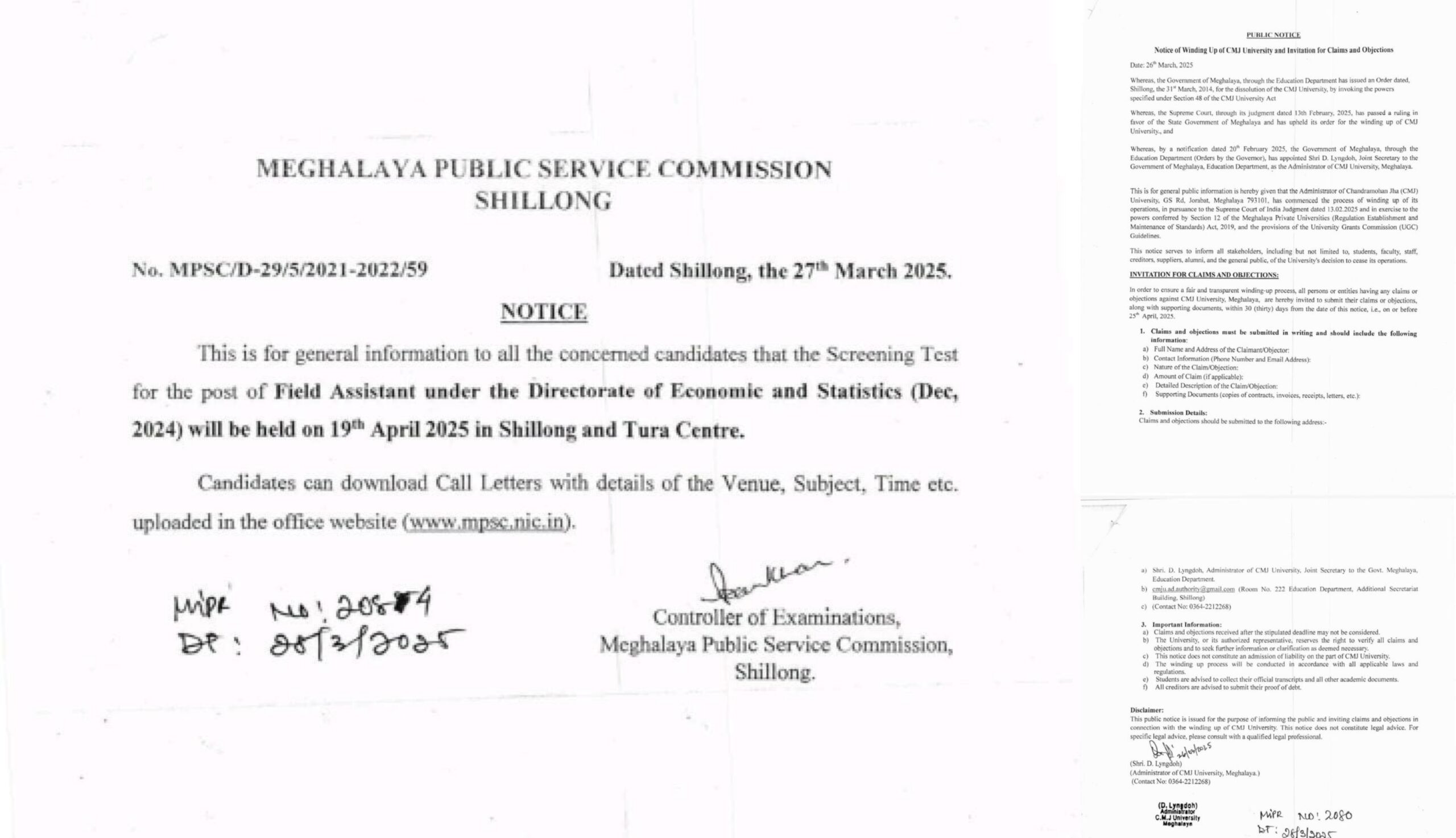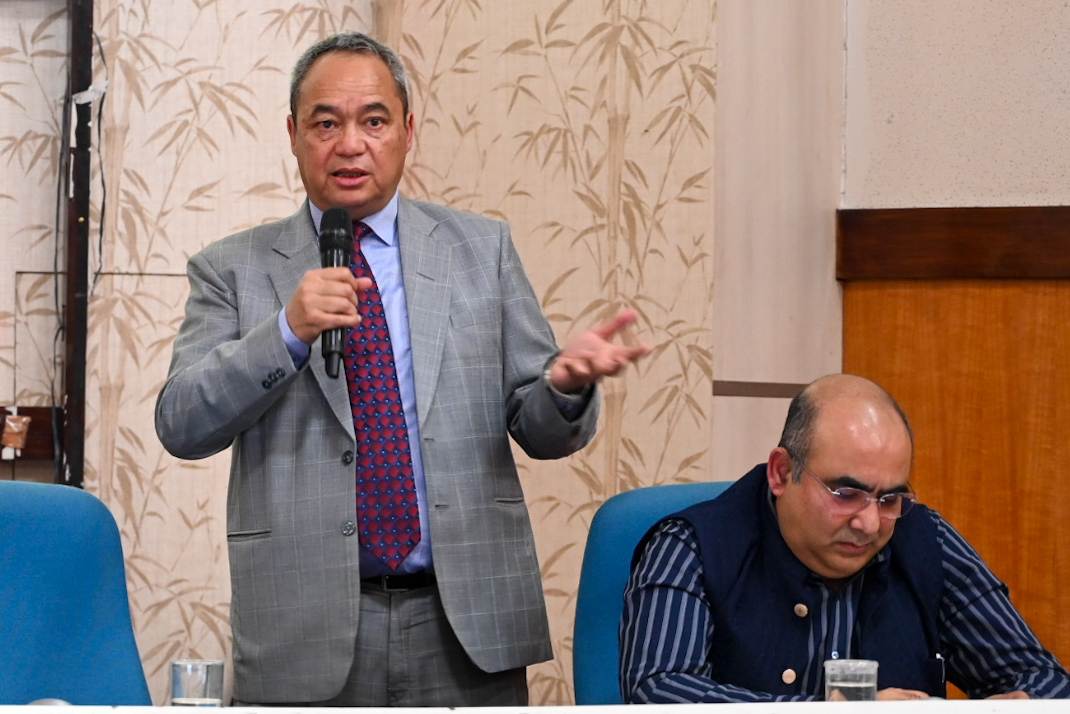With the National Green Tribunal listed – Wah Umkhrah and Wah Umshyrpi rivers of Meghalaya amongst the 45 most polluted rivers of the country, as many as Thirty-two areas have been identified along the two rivers – Umkhrah and Umshyrpi – for setting up of sewage treatment plants (STPs).
Talking to reporters after making a presentation during a meeting on Rejuvenation and Restoration of the major rivers of Shillong viz Wahumkhrah, Wah Umshyrpi and Wah Umkhen held at Yojana Bhawan on Friday, Chief Secretary, D P Wahlang informed that five sewage treatment plants are under construction along Umkhrah and Umshyrpi river.
“32 areas have been identified, 20 along Wahmukhrah and 12 along the Umshyrpi. They are known as fall of areas where we need to set up sewage treatment plants (STPs) and five of them are under construction and remaining we are looking for land,” Chief Secretary Wahlang said.
He called upon the active participation of the community and different stakeholders like KHADC, Dorbar Shnongs, civil society organizations in awareness and mobilization.
“Wherever the Government land is available we will set up this STPs and if not we have asked for the cooperation of the local durbars to give us land as per the direction of the NGT,” the Chief Secretary said.
The Government has also decided to impose hefty fines against direct discharging of sewages into their water bodies.
“Anyone discharging directly into the rivers and anyone having faulty or defective septic tanks if they don’t repair it in 10 days time the file will be imposing at the rate of Rs 500 per day till they ensure the discharge is not directly going into the water bodies,” Wahlang said.
He also informed that 45 days was also given to the concerned authority to take corrective action against mining activities in and around the Umkhen River.
The meeting was also attended by Chief Minister, Conrad K Sangma, Deputy Chief Minister, Sniawbhalang Dhar, Minister, A L Hek, Chief Secretary, D P Wahlang senior officers, members of Dorbar Shnongs and representatives from different civil bodies.
In his remarks, Chief Minister, Conrad K Sangma said that the objective of the meeting was identify the critical gaps and devise future action plan and the way forward in the rejuvenation and restoration of the three important rivers of Shillong while soliciting the participation and suggestions of the Dorbar Shnongs and the communities.
The Chief Minister also said that there needs to be a balance between ecology and economy adding, “The meeting that we are having today is a part of the larger agenda of the State government to have a balance among livelihood, economy and environment so that while the economic needs are being taken care of the environment is also protected and conserved for future generations,” he said. He also said that the government is committed to rejuvenation and restoration of all water bodies in the State.
He also highlighted some of the programmes of the government for climate change mitigation, sewage and waste management, phasing out single use plastic, mitigating air pollution through use of electric vehicles and afforestation and community participation through awareness and involvement of students and youth through programmes and designing curriculum.


